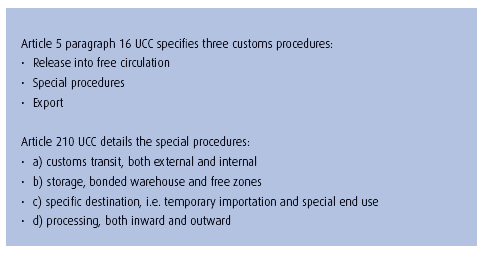Since the introduction of the Union Customs Code (UCC) it is obligatory to monitor that goods from outside the European Union are not held in temporary storage for longer than 90 days. The legislation allows no possibility to extend this period. The period is terminated by either re-exporting the goods or placing them under a customs arrangement, such as releasing into free circulation, placing under special procedures or exporting. Non-compliance with this obligation incurs a Customs debt and the debtor is the person who had been obliged to fulfill this obligation. In this case, therefore, an important task for the licence holder of the Space for Temporary Storage (STS) as he will be held responsible by Customs for the customs debt.

Problems monitoring the 90 days between STS holders
The challenge for STS holders, but also for Customs in the context of their supervisory function, is to monitor the 90 days throughout the chain. In a simple example of when only one transfer between STS
holders takes place with goods from outside the Union that have already had temporary storage status for 10 days. These goods may be held by the new STS holder in temporary storage for a maximum of 80 days. It is therefore important that the period of storage that has already elapsed is made known to the next STS holder in order that the remaining allowable period can be monitored as part of
their internal process.
As the starting date of goods being held in temporary storage is not shared in the chain, it can be challenging, especially for subsequent
STS holders, to correctly monitor the maximum period of 90 days temporary storage. Last but not least, Customs also lacks a full overview
of the timely termination of the temporary storage of goods that have been brought in. For this reason, many STS holders experience Customs undertaking regular inventory checks. For each individual shipment, Customs must work backwards to check that the 90-days period has not been exceeded. This is very laborious for all parties involved and it is for this (and other) reasons that work is currently
being undertaken to redesign the DGVS (paperless cargo tracking system) with respect to air cargo.
Unlocking information for market partners
I often wonder if it could be simpler and if Customs themselves should play a more active role to enable market participants to be able to
check the status of a shipment and consult the relevant declaration. In my opinion, every market participant should be able to check a declaration status without having to be connected to a system. Various examples can be found on the European Commission website.

“For each individual shipment, Customs must work backwards to check that the 90-days period has not been exceeded”
Does unlocking the initial STS date offer a solution?
Suppose the starting date for goods in temporary storage is shared with a successive STS holder in the form of an “initial STS date”, for example, on a transfer document or by electronic message. This gives the individual STS holder the opportunity of entering this date field into his own warehouse management system therefore allowing the application to calculate the number of temporary storage days
remaining.
For example
Initial STS date : 10-05-2018
Remaining storage : 85 days
Customs regime : STS
By using a code to indicate the regime, the STS holder can use his own warehouse management system to compile a stock list of shipments showing actual STS stock. The warehouse management system could subsequently assist the STS holder even further if the regime code were to be automatically changed, for instance, to PCW (public customs warehouse) storage at, ultimately, 89 days.
Keeping track manually on individual Excel sheets or relying upon an external environment such as a DGVS platform, would, for this particular issue, become things of the past. In my view, having your own internal process management in order, preferably in an automated way, remains an important principle.
Read the full article on page 52 in Cargo Magazine click here
Raoul Paul | Linkedin
raoul.paul@cargohub.nl
================
ABOUT CARGO MAGAZINE
The printed edition of Cargo Magazine is distributed free of charge in the Netherlands and Belgium and the online version will be shared with our worldwide network of proffessionals in both the Dutch and English language. We greatly appreciate your contributionn in professional writing, an interview or editorial or advertising.
Information:
For more information please see our media-pack
Our magazine team is ready to answer any questions you may have.
Kind regards,
Cargo Magazine Team
Email : redactie@cargomagazine.nl



Be the first to comment on "Customs “Is monitoring the 90 day period in STS problematic for the supply chain?"